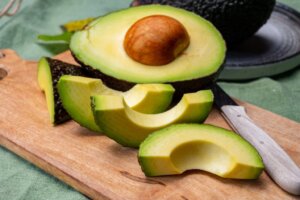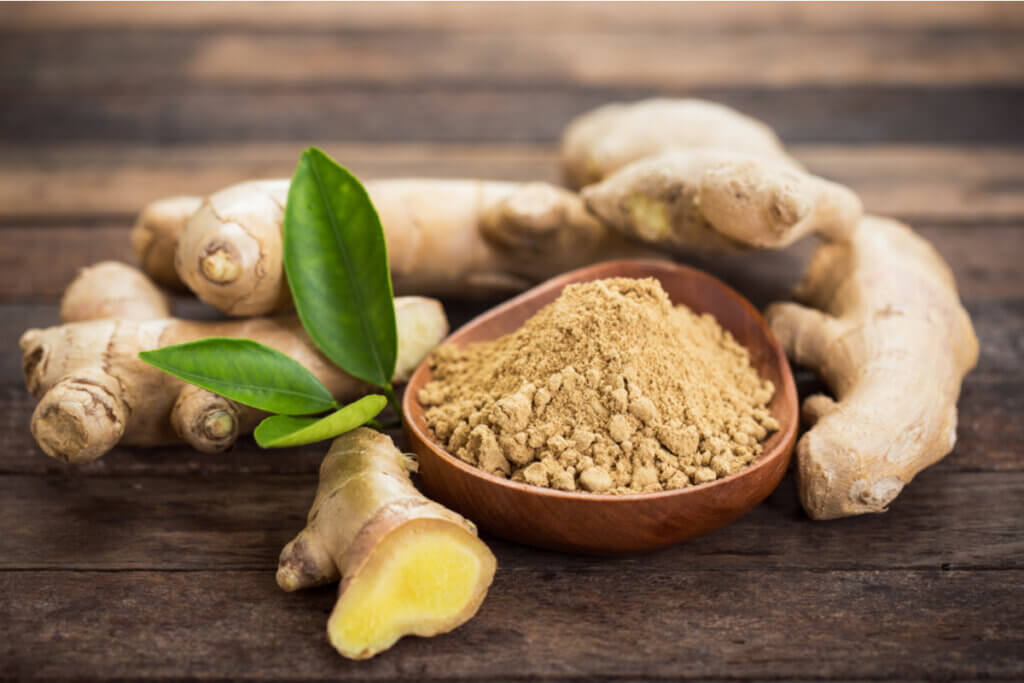Three Foods to Increase Testosterone Levels in the Body

Testosterone is one of the most important hormones for correct organic functioning. It plays an important role in muscle hypertrophy and in the expression of secondary sexual characteristics. It also modifies feelings of vitality. In this article, we’re going to identify the main foods for increasing testosterone levels in the body.
Firstly, you should know that the effects of diet on the synthesis of this substance are limited. Production can be increased a little, but only within a limited physiological range. In fact, the results, especially at the muscular level, should never be compared with those obtained by users of anabolic drugs.
Foods to increase testosterone
If you introduce the foods that we talk about here in the context of a varied and balanced diet, you’ll be able to increase the levels of testosterone in your body. Consequently, you’ll feel more energetic and improve your physical performance.
Ginger
Ginger is a root that’s frequently used as a culinary spice. It usually has a slightly spicy flavor and has an anti-inflammatory effect on the body, promoting weight loss. It’s considered healthy and its regular consumption contributes to the prevention of chronic and complex disorders.
According to a study published in the journal Biomolecules, regular intake of this food could slightly increase testosterone, especially in men with reduced levels. It also increases the quality of semen. Therefore, we can safely say that men will improve their reproductive success if they include ginger in their diet.

Eggs
High-quality protein is essential for the maintenance of lean mass. Eggs are foods that manage to ensure the supply of proteins of high biological value. In addition, they have an excellent level of digestibility. Furthermore, they’re extremely versatile on a culinary level, so it’s easy to include them in the diet.
Some amino acids found in eggs may also be decisive in optimizing testosterone production. In addition, according to research published in the journal Reviews in Endocrine & Metabolic Disorders, a vitamin D deficiency could affect men’s fertility and testosterone production. The egg is one of the few foods that concentrates this nutrient inside, so it helps in this respect.
Avocado
High inflammation levels could negatively affect hormonal balance, lowering the synthesis of key substances for the body. This is why it’s essential to ensure the consumption of anti-inflammatory nutrients in order to maximize the production of testosterone and other determining elements for health.
Avocado is one of the best sources of fatty acids from the omega 3 series that can be introduced into the diet. These lipids reduce low-grade chronic inflammation, also helping to prevent many chronic and complex conditions. In addition, both extra virgin olive oil and blue fish are rich in these fats.
Exercise for testosterone production
Maintaining a good diet can slightly increase testosterone production, or, at least, prevent it from declining. However, what’s really important is the regular practice of resistance exercise.
High-intensity activity triggers the production of testosterone and growth hormones, especially when training sessions are based on multi-joint exercises with a lot of weight training. In this way, the maintenance of synthesis at the highest values within the normal physiological range will be ensured.

Include foods to increase testosterone in your diet
As you’ve seen, it’s possible to increase the presence of certain foods in your diet that are capable of increasing testosterone. The effects will be even more noticeable if an insufficient synthesis of the hormone has been experienced thus far. This will improve fertility and feelings of vitality.
However, don’t forget that it’s also necessary to undertake other good lifestyle habits in order to optimize hormonal production. In fact, to obtain the best results, you need to strength train frequently and get plenty of rest each night.
Testosterone is one of the most important hormones for correct organic functioning. It plays an important role in muscle hypertrophy and in the expression of secondary sexual characteristics. It also modifies feelings of vitality. In this article, we’re going to identify the main foods for increasing testosterone levels in the body.
Firstly, you should know that the effects of diet on the synthesis of this substance are limited. Production can be increased a little, but only within a limited physiological range. In fact, the results, especially at the muscular level, should never be compared with those obtained by users of anabolic drugs.
Foods to increase testosterone
If you introduce the foods that we talk about here in the context of a varied and balanced diet, you’ll be able to increase the levels of testosterone in your body. Consequently, you’ll feel more energetic and improve your physical performance.
Ginger
Ginger is a root that’s frequently used as a culinary spice. It usually has a slightly spicy flavor and has an anti-inflammatory effect on the body, promoting weight loss. It’s considered healthy and its regular consumption contributes to the prevention of chronic and complex disorders.
According to a study published in the journal Biomolecules, regular intake of this food could slightly increase testosterone, especially in men with reduced levels. It also increases the quality of semen. Therefore, we can safely say that men will improve their reproductive success if they include ginger in their diet.

Eggs
High-quality protein is essential for the maintenance of lean mass. Eggs are foods that manage to ensure the supply of proteins of high biological value. In addition, they have an excellent level of digestibility. Furthermore, they’re extremely versatile on a culinary level, so it’s easy to include them in the diet.
Some amino acids found in eggs may also be decisive in optimizing testosterone production. In addition, according to research published in the journal Reviews in Endocrine & Metabolic Disorders, a vitamin D deficiency could affect men’s fertility and testosterone production. The egg is one of the few foods that concentrates this nutrient inside, so it helps in this respect.
Avocado
High inflammation levels could negatively affect hormonal balance, lowering the synthesis of key substances for the body. This is why it’s essential to ensure the consumption of anti-inflammatory nutrients in order to maximize the production of testosterone and other determining elements for health.
Avocado is one of the best sources of fatty acids from the omega 3 series that can be introduced into the diet. These lipids reduce low-grade chronic inflammation, also helping to prevent many chronic and complex conditions. In addition, both extra virgin olive oil and blue fish are rich in these fats.
Exercise for testosterone production
Maintaining a good diet can slightly increase testosterone production, or, at least, prevent it from declining. However, what’s really important is the regular practice of resistance exercise.
High-intensity activity triggers the production of testosterone and growth hormones, especially when training sessions are based on multi-joint exercises with a lot of weight training. In this way, the maintenance of synthesis at the highest values within the normal physiological range will be ensured.

Include foods to increase testosterone in your diet
As you’ve seen, it’s possible to increase the presence of certain foods in your diet that are capable of increasing testosterone. The effects will be even more noticeable if an insufficient synthesis of the hormone has been experienced thus far. This will improve fertility and feelings of vitality.
However, don’t forget that it’s also necessary to undertake other good lifestyle habits in order to optimize hormonal production. In fact, to obtain the best results, you need to strength train frequently and get plenty of rest each night.
All cited sources were thoroughly reviewed by our team to ensure their quality, reliability, currency, and validity. The bibliography of this article was considered reliable and of academic or scientific accuracy.
- Banihani S. A. (2018). Ginger and Testosterone. Biomolecules, 8(4), 119. https://doi.org/10.3390/biom8040119
- de Angelis, C., Galdiero, M., Pivonello, C., Garifalos, F., Menafra, D., Cariati, F., Salzano, C., Galdiero, G., Piscopo, M., Vece, A., Colao, A., & Pivonello, R. (2017). The role of vitamin D in male fertility: A focus on the testis. Reviews in endocrine & metabolic disorders, 18(3), 285–305. https://doi.org/10.1007/s11154-017-9425-0
This text is provided for informational purposes only and does not replace consultation with a professional. If in doubt, consult your specialist.







